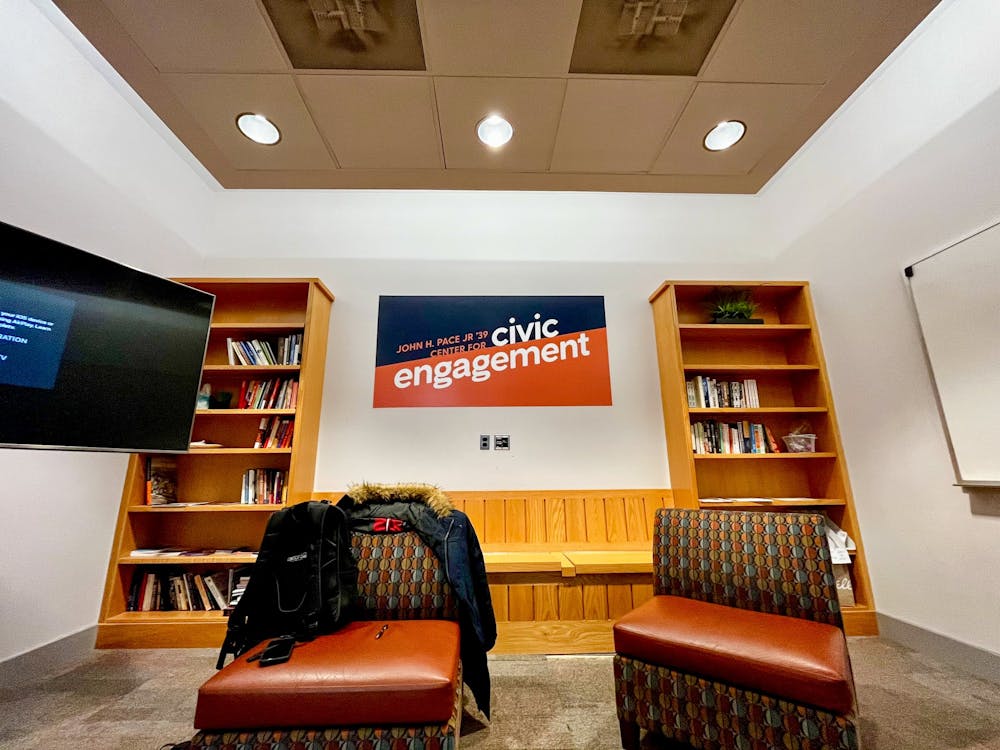This column appears in a college newspaper, not a national policy journal, but we should still be concerned by the absence of public debate. This point has been made about the nation as a whole by columnists such as Ross Douthat of The New York Times. But this silence has also been noticeable on our campus, and is especially puzzling given our large population of critics of the War in Iraq.
This reaction is partly a reflection of a new kind of presidency — new as of the 20th century — that envisions the presidency as a “bully pulpit.” But even Progressive Era presidents would make a case to the people from that platform. The last few weeks had no such discussion between the president and the people.
It’s not because the American people agree with the decision. Polls from Rasmussen Reports show that only 34% of Americans support intervention in Libya. Two weeks ago, that number was even lower, at 22%. In the absence of any serious presentation from the president, it’s not at all clear that public support has shifted over the past two weeks. Any military intervention, no matter how limited initially, runs the risk of turning into a sustained commitment. It's not at all clear that the American public is willing to support that kind of engagement.
The president has gotten by without any debate, in part because Congress has had no role. The War Powers Resolution of 1973 grants the president authority to undertake military action without a congressional declaration of war, provided he notifies Congress and receives approval if the action lasts longer than 60 days. Without a declaration, President Obama has relied so far on this law to order our troops into action. Yet the Iraq War, which upset so many on the left, had congressional approval. Nevertheless, the same critics who accused President Bush of forcing the United States to war without proper debate are strikingly silent this time around.
More fundamentally, there has been no public effort to define the objective of “Operation Odyssey Dawn.” On March 3, President Obama declared, “It’s time for Gaddafi to go.” There was talk of supporting the Libyans fighting to topple their dictator and seize the freedom that their neighbors in Egypt have sought. Given a clear plan at that moment, foreign support for the rebels might have been defensible.
This weekend, however, the president never mentioned regime change. Democratic senator John Kerry, chairman of the Senate Foreign Relations Committee, suggested regime change wasn’t the purpose. Instead, the president’s effort to “be clear” was this: “Actions have consequences, and the writ of the international community must be enforced. That is the cause of this coalition.” In short, it’s not entirely clear whether this is a humanitarian intervention, regime change operation or something in between.
That lack of distinction also means it won’t be clear when we will cease operations, or when we do cease operations, whether we will have achieved our aims. How we will define success in Libya is entirely up in the air (so to speak). Perhaps there is some confusion about what a no-fly zone exactly entails, but that is all the more reason for the president to make his case to Congress and the American people as part of a public debate.
Finally, the Bush administration was particularly excoriated by the left for entering a war in which the goals (regime change) did not match the strategy. The coalition forces and civilians from their home governments did a remarkable job of improvising to meet those challenges. Relying on improvisation again is a bad idea, and one that the president, who ran against the Iraq War in 2008, should ostensibly realize.
By the time the authoritarian members of the U.N. Security Council agreed to abstain from the U.N. resolution authorizing a no-fly zone, the rebels were cornered by Gaddafi’s forces. Removing Gaddafi with only a no-fly zone, or even only air power in general, is now nearly impossible, but President Obama has ruled out a ground invasion. An intervention with unclear aims and means could easily expand, and this reason is why debate is so important.
The purpose of this column is not to argue against intervention in Libya. Prudent intervention as part of a well-defined and well-planned mission earlier in the civil war would be an entirely different question, and the abuses Gaddafi has committed are truly awful. Most of all, we must now unhesitatingly support our troops and trust that if anyone can achieve such vague and difficult objectives, it will be the men and women of the U.S. armed forces.
The purpose of this column is instead simply to ask where the public debate has been on a campus that argued so passionately over Iraq. Military engagement is inherently complicated, all the more so in Libya. The least we can do is define and defend the mission publicly.
Brian Lipshutz is a politics major from Lafayette Hill, Pa. He can be reached at lipshutz@princeton.edu.








